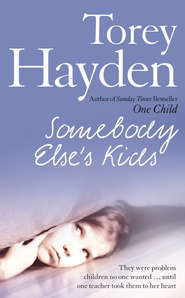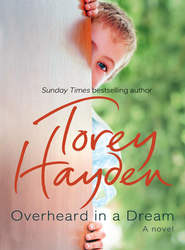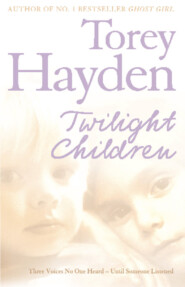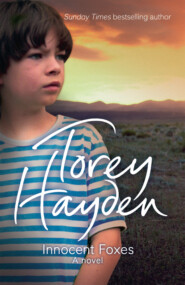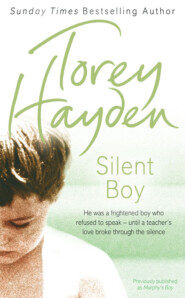По всем вопросам обращайтесь на: info@litportal.ru
(©) 2003-2024.
✖
The Sunflower Forest
Автор
Год написания книги
2018
Настройки чтения
Размер шрифта
Высота строк
Поля
Without any show of good humour, I got out of bed and followed her back to her own room. She ran across and bounced up on the bed.
‘Lookie here, Les.’
‘This better be good. Or I mean it, Megan, I’m going to murder you.’
‘Look.’ She had the curtain held back.
It was not quite dawn. Early March and the world for the main part was still winter grey. From Megan’s window I could see the big, leafless sycamore in the Reilly’s backyard, the street, the roofs of other houses, and out beyond them the dull, yellowish stretch of plains. The day was dawning clear and cloudless, but at that hour the sky was mostly without colour.
‘I don’t see anything, you little pig. What did you drag me in here for anyway?’
‘Down there. Look in the grass under the window.’
On the small stretch of lawn between our house and the Reilly’s, I could make out crocuses growing in the grass. White and yellow ones, forming letters, M-E-G-A-N.
‘Look at it. See? Someone’s made my name in flowers down there on the lawn. See them? I never noticed them until just this minute when I woke up and looked out. And there they were.’
I pressed my nose against the glass to see them better. The letters were surprisingly clear in the grass. Then the windowpane fogged over with my breath.
‘It’s like magic, isn’t it?’ Megan said. Megan was the kind of child to believe in magic. Although she didn’t admit it, I knew she still hoped for the possibility of fairies and elves and a real Santa Claus.
I tried to see down the strip of lawn to tell if there were flowers under my window too. When I saw crocuses there, I pointed them out to Megan and she bolted off her bed and down the hallway to my room.
The letters making my name were not nearly so well formed as Megan’s. They looked like L-E-S-L-F. There was no Y at all, just random flowers. But still, I could see it was my name.
‘Who did it, do you think?’ Megan asked, as she tried to wrench open my window to stick her head out.
‘I don’t know.’
‘Mama. I bet it was Mama. I bet Mama did it.’ The window wouldn’t open after the long winter of being shut. Megan pressed her face and both her palms flat against the glass. ‘Or maybe it’s really magic. It’s like magic, isn’t it? I’ve never seen it before now and there it was, like it came up overnight. There was my name in the grass.’
‘I don’t think it did,’ I said. ‘We never go over on that side of the house. It could have been up for ages.’
‘But I look. I’m always looking out my window, Lesley, just like now. And there it was. Just this morning.’
The discovery excited Megan out of all proportion to what it was. I couldn’t restrain her from galloping in and bounding into bed with Mama and Daddy. They were both asleep when she crawled in between them. My father woke, yawning. Mama turned over sleepily and kissed Megan on top of her head. Megs was squirming down between them and chattering like a chipmunk. When Mama saw me standing in the doorway, she beckoned. I got into the bed with everyone else.
Mama put her arms around us. Megan was between her and Daddy and I was on Mama’s other side. She pressed us against her with strong arms, and my nose was filled with her warm, familiar smell. It was a broody scent, of baby powder, stale cigarette smoke and sleep.
‘Did you plant the flowers, Mama?’ I asked.
She nodded. She was smiling drowsily.
‘It’s like real magic,’ I heard Megan say. Her voice was growing soft and sleepy sounding. I lay with my head pressed against Mama’s breast. She had her left hand on my face. Her skin was almost hot, and I could feel the faintly different temperature of her wedding ring against my cheek.
‘It was magic, Liebes,’ Mama said to Megs.
There were a few moments of sleepy silence.
‘I love you, Mama,’ Megan whispered.
Then my father rolled over with a motion that rocked the whole bed. He settled deeper into his pillow. ‘There’re an awful lot of female voices nattering on in this bed,’ he said without opening an eye. ‘And this being Sunday and the day of rest …’
With a finger to her lips, Mama winked at me. No one spoke again. I lay for a while, quite wide awake. I could hear Mama’s heart beating. I lay listening to it. Then eventually, I closed my eyes and went back to sleep too.
Chapter Eight (#ulink_ced47a52-8c92-5899-9d76-9065096a9f1f)
When I was very young, we lived in west Texas for a while. I don’t remember much about it. I was only about three at the time. I don’t recall anything about the house at all. I do, however, remember that there was no yard at the back of the house. The ground just stretched away from the back porch down a hill and out on to alkali flats before dissolving into the interminable plains. Sitting on the porch, I used to look out over the landscape and think to myself that if I could only see far enough, the plains would stretch all the way to the ocean and on the other side was Madrid, Spain. Why Madrid, Spain, I don’t know. How I even knew there was such a place, when I was that age, I don’t know either. But that was one of only two clear memories of the house in west Texas. My other memory was of the sunflowers.
Down on the alkali flats below the hill grew sunflowers. They may have been wild ones, springing up after the summer downpours had flooded the flats. Or maybe they were cultivated. My memory doesn’t serve me there. What I do remember is sitting on the porch and looking down on all those sunflowers.
They were beautiful from the hill. The big golden heads would track the sun through the day, and that made them seem as if they were looking at me part of the time and looking away the other. Sometimes children would come and play there. From where I was sitting on the hill, I could see them, small as insects, disappear amid the flowers and the huge heads would nod and sway as the children ran among them. Laughter would ride up the hill on the wind.
I longed to go down there myself. The sunflowers beckoned to me welcomingly. Certainly I didn’t have permission the day I did go. I remember slipping down the rough prairie grass of the hillside, keeping low to the ground to stay out of Mama’s sight, in case she glanced out the window. Then I ran across the flats and into the shadows of the flowers. My biggest concern was not getting caught.
When I ran among the sunflowers, I discovered they were gigantic, a veritable forest, not small, the way they appeared from the hilltop. The flowers were high above my head, and before I realized what was happening, I was deep among the tall stalks. With each step I took, the green-and-gold wilderness closed silently behind me. In no time at all, I was lost, trapped.
I screamed.
I flailed about amid the sunflowers, hysterical, crying in terror to get out. The flowers went on and on in all directions, and I could not escape. Panic-stricken, I thrashed and screamed and was swallowed up.
Mama found me. From the house on the hilltop she could hear my terrified crying. She’d come crashing in among the sunflowers, bending them aside, pushing them down. They were even taller than she was.
In her hurried slide down the hillside to reach me, she had slipped and scraped her knee. I remember clutching frantically at her and tasting blood mixed with my tears. She pulled my fingers apart and lifted me up on her shoulders so that my head was above the flowers and she carried me out.
What I remember with brittle sharpness is that final moment, being on my mama’s shoulders. I remember turning and looking back at the forest closing behind us, the flowers bright in the Texas sun, and innocent and heartless.
For my mother, however, sunflowers had an entirely different connotation. They were of almost mystical significance for her. Sunflowers had grown wild in the back garden of their cottage in Wales after the war. The way Mama talked about it, it was easy to tell that she perceived the appearance of those unexpected sunflowers as practically a religious experience. They were the sign of her resurrection, and she knew she had managed to pass through her season in Hell.
My mother loved to tell us about those years in Wales. They were among her very best stories, spun out in epic, almost myth-like proportions, laced with lyrical descriptions of an aged land. I loved them above all the others, not only because she made them so beautiful to listen to, but also because they were the only stories about her life after the war that had the same magnificence as her tales of Lébény and her girlhood. They reassured me that she still had the capacity to be happy and that all her joy had not been dragged from her by the horrors of the war.
The translated name of the cottage was Forest of Flowers. It was high up a mountainside in north Wales. Mama always told us how she and Daddy had had to climb the last half mile to the cottage on a small, steep path. I had a very romantic image of Forest of Flowers in my mind. I could see the narrow, meandering trail passing through sun-dappled woods, the forest floor a carpet of snowdrops and bluebells and populated with little Thumpers and Bambis. And there in the clearing, like Snow White’s cottage, was Mama’s holly hedge and the winter jasmine and the quaint wooden arch, all leading up to the whitewashed Forest of Flowers.
Those were her sunflower years.
In Kansas, sunflowers are grown commercially. If you go out in the late summer along the small country roads in western Kansas, you’ll come upon field after field of flowers, a sea of golden, nodding heads. In the time since we’d moved to Kansas, it had become a family ritual to drive out every few weeks to watch the progress of the sunflower fields from planting in March to harvesting in mid-autumn. In spite of that childhood experience, which still came back to me in nightmares, I enjoyed these journeys, although I never could bring myself to walk down the narrow rows between the stalks, planted in military straightness, the way Mama and Megan did. For my mother especially this observation of the sunflower crop was a most pleasurable way of marking the year. The sunflowers were the single redeeming feature of Kansas for my mother.
By mid-March the ground underfoot was spongy and smelled of newness. The sun had grown surprisingly hot in the space of a few weeks. It was a Saturday afternoon, but despite the weather, I was in my room studying. On the next Monday we were having an exam in calculus, and I’d be the first to admit that calculus was not my best subject. It wasn’t going to be an easy test either. Mrs Browder told us on the previous Friday that she was intending to give us a set of ten problems and we had to solve eight of them. So I was frantically going back over old assignments to make sure I knew how to do them.
Mama came to the open door of my room. ‘I feel like a walk,’ she announced.
This caught me completely unawares because my mother had not been out of the yard since the end of January. I turned from my desk to see her standing in the doorway. She was dressed in old tan corduroys and a plaid shirt. She had one of Dad’s pullovers on, and her hair tied back with a yarn ribbon. She smiled at me, knowing, I think, that she’d surprised me.
‘They’ll be starting to put the sunflowers in,’ she said. ‘And I want to walk out and see.’
‘Mama, it’s quite a walk. Most of those fields are at least a couple of miles away or more. If you wait until Daddy comes home, I’m sure he’ll take you out in the car.’
She remained in the doorway. She had a small smile that gave her a look of amusement. ‘Come with me, baby. We can walk that far. It’s such a beautiful day, and I’m longing to move my legs.’






